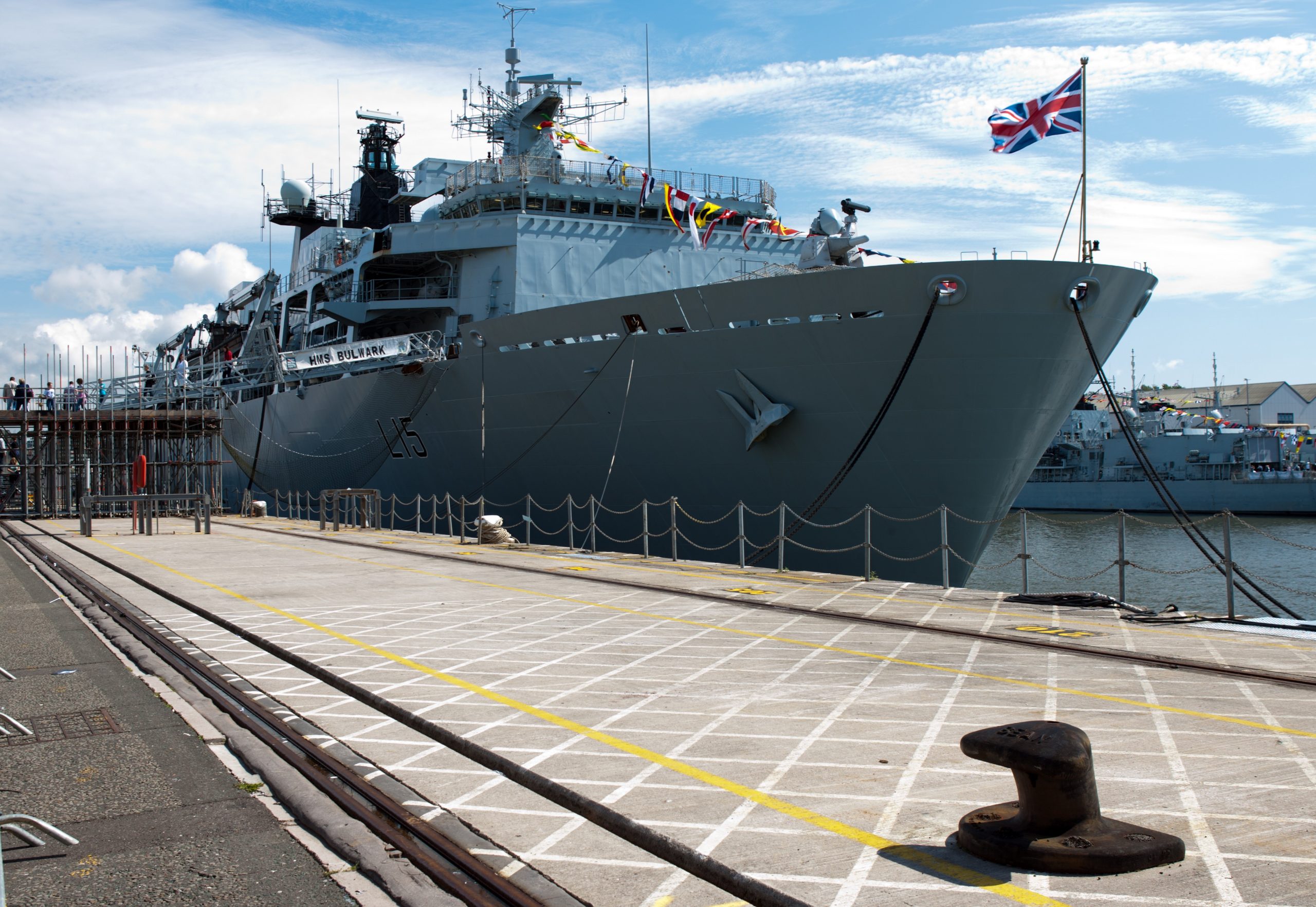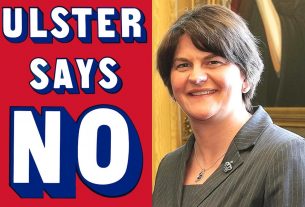The Royal Navy has been put on standby to protect British fishing waters from European boats in the event of a no-deal Brexit with four 80-metre armed patrol ships being readied for January 1.
Ministers are understood to be preparing legislation to empower the Royal Navy Police “to board foreign vessels and arrest fishermen if required.” The four patrol ships will have powers to stop and even impound EU boats found to be fishing illegally in British waters
The Financial Times reports the 80-metre armed Royal Navy River Class boats “would be deployed from January 1 to police the UK’s ‘exclusive economic zone’ (EEZ), which stretches up to 200 nautical miles from the coastline”.
The plan has come to light ahead of tomorrow’s (Sunday) critical deadline for an agreement with the EU to be reached and has been heavily criticised by senior Conservatives.
Boris Johnson has been branded an “English nationalist” by the last governor of Hong Kong and former Tory party chairman Lord Patten who accused the PM of being on a “runaway train of English exceptionalism”.
‘Johnson isn’t a Conservative, he is an English nationalist’, says former Tory chairman
Lord Patten told BBC Radio 4’s Today programme: “What we’re seeing is Boris Johnson on this runaway train of English exceptionalism and heaven knows where it is going to take us in the end.
“I want the best for my country, I fear for what’s happening at the moment and I fear for our reputation around the world, I fear for what will happen economically.
“I hope that I’m wrong to feel so depressed about the outlook but I don’t think that Mr Johnson is a Conservative, I think he is an English nationalist.
“And all the things that Conservatives used to believe in – like standing up for the Union, like not attacking our institutions, like the judges, like believing in international co-operation – seem to have gone out of the window.”
‘Undignified prospect of Royal Navy squaring up to a Nato ally over fish’
Strong criticism of the plan to deploy gunboats has also come from the Conservative chair of the Commons defence committee, Tobias Ellwood who called the proposal “absolutely irresponsible”.
Ellwood told the same radio programme that “the undignified prospect now of our overstretched Royal Navy squaring up to a close Nato ally over fishing rights” comes as Russian drone and submarine activity in British waters is increasing.
Cornwall will be ‘significantly worse off’
Meanwhile fears are growing in Cornwall of a massive cut in funding for the county after Brexit which will leave them “significantly worse off”.
Cornwall has applied for £700 million from the UK government to replace the funding it would have received from the EU over the next decade as one of Europe’s poorest regions.
However – and despite Boris Johnson’s promise that Cornwall would get all the funding replaced – the county may only receive £1.8 million next year.
Tim Dwelly, cabinet member for economy and planning on Cornwall Council said Johnson “seems to have completely broken his promise” to match EU funding. Dwelly added: “To stand still, with EU levels of funding, Cornwall would have needed the government to commit to at least £100m a year from the Shared Prosperity Fund.”
In November’s spending review chancellor Rishi Sunak announced £220 million to be allocated in 2021-22, “to help local areas prepare for the introduction of the UK Shared Prosperity Fund.”
Sunak said the whole of the UK will benefit from the fund and that the government “will ramp up funding so that total domestic UK-wide funding will at least match EU receipts, on average reaching around £1.5bn a year”.
One of the poorest regions in EU voted to leave
In the EU referendum Cornwall voted 56.5% to leave. Three quarters of neighbourhoods in the county are more deprived than the UK national average in terms of housing, access to services, employment, income and health.
“All those Brexit myths of British greatness somehow overlooked the fact that the UK has some of the poorest regions in Europe, that gained considerably from EU support,” commented Andrew McRae, an English professor at the University of Exeter, adding: “Good luck getting that from the Tories.”
Cornwall council has confirmed it will keep its office in Brussels after January with leader Julian German explaining the benefits of the £80,000 cost per year of the shared office.
“I think it is really important that we are continuing to reach out to our friends and partners in Europe, that we continue to have access for our businesses and that they have that intelligence and that we can help to make trade and relationships as smooth as possible post Brexit.,” said German.
The Conservative group on Cornwall council have called for the Brussels office – which is shared with the Cornwall and Isles of Scilly Local Enterprise Partnership and Combined Universities in Cornwall – to be scrapped.




